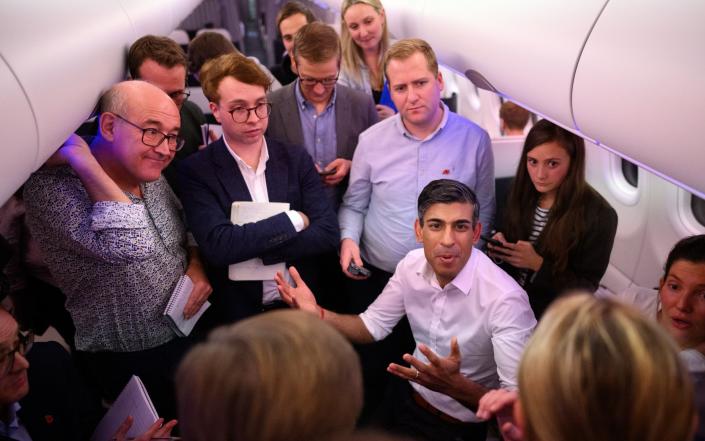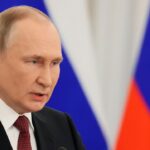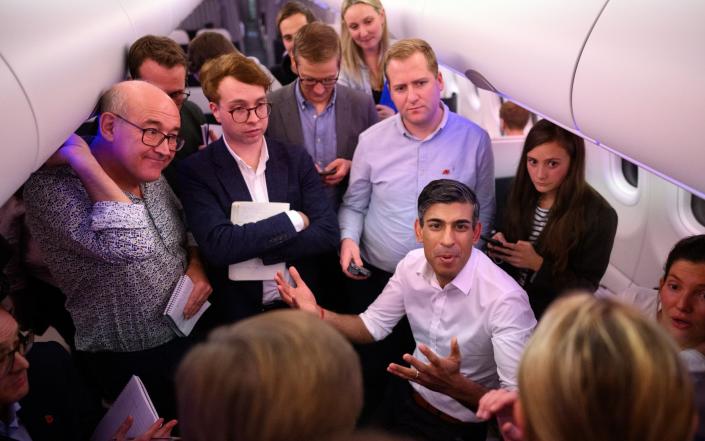
Rishi Sunak has labelled Russia a “rogue state”, as he called out Vladimir Putin for not attending the G20 summit in Bali.
The Prime Minister said the Russian president’s no-show at the summit on Monday means he is not even attempting to explain his actions, despite being “responsible for so much bloodshed in Ukraine”.
The summit is the first time a UK Prime Minister has met with Russian officials since the Ukraine invasion in February, with Sergei Lavrov, the Kremlin’s foreign minister, coming in Putin’s place.
Mr Sunak will use the summit’s first plenary session to confront Mr Lavrov about Russia’s “illegal” invasion, echoing the tough line of his predecessors Boris Johnson and Liz Truss.
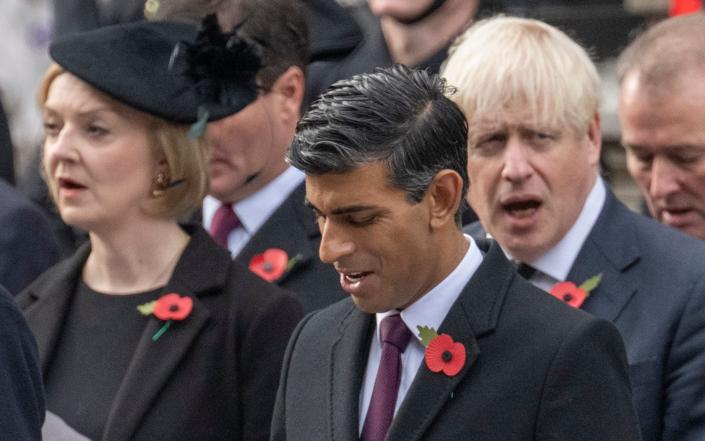

The Prime Minister will also be pushing a five-point economic action plan for the G20 – a gathering of the world’s biggest economies – which will include lowering the dependence on Russia oil and gas.
Mr Sunak will also hold talks with Joe Biden, the US president; Narendra Modi, the Indian president; Fumio Kishida, the Japanese prime minister; Anthony Albanese, the Australian prime minister; and Prince Mohammed bin Salman, the Crown Prince of Saudi Arabia, who is also the country’s prime minister.
It will be the first time Mr Sunak has met Mr Biden, with Ukraine, free trade, energy security and the Northern Ireland Protocol all topics that could feature.
Writing for The Telegraph, Mr Sunak outlined his tough stance on the Kremlin that will be put in the spotlight during this week’s summit.
Mr Sunak wrote: “We will not let our economic future be held hostage by the actions of a rogue state – and nor will our allies.”
He also said of Putin: “Leaders take responsibility. They show up. Yet, at the G20 summit in Indonesia this week, one seat will remain vacant.
“The man who is responsible for so much bloodshed in Ukraine and economic strife around the world will not be there to face his peers. He won’t even attempt to explain his actions. Instead, he will stay at home and the rest of us will get on with the task at hand.
“Last week, we saw the Ukrainian flag raised once again over Kherson only weeks after Putin declared that the city would be part of Russia forever. It is an historic milestone in Ukraine’s fight to take back what’s theirs.
“They are standing up for fundamental principles that matter to us all – the principles of sovereignty and self-determination, which are the very foundations of a stable international order.
“But we know the Ukrainian people are still suffering terribly under the continued Russian bombardment and prolonged power blackouts in near-freezing temperatures.
“That’s why when I spoke to Volodymyr Zelensky, the Ukrainian president, last Thursday, I made clear that Britain will never back down when it comes to supporting the Ukrainian people in the face of this brutality.”
The nations that make up the “group of 20” are Argentina, Australia, Brazil, Canada, China, France, Germany, India, Indonesia, Italy, Japan, Mexico, Russia, Saudi Arabia, South Africa, South Korea, Turkey, the UK and the US.
Hopes are slim of getting a communique agreed with any firm language about the Ukraine war, given that every country needs to agree to the text and Russia is present.
The summit will offer one of the first glimpses into Mr Sunak’s world view as leader, with the new Prime Minister’s stances on many geopolitical issues little known.
Mr Sunak’s past ministerial briefs have been in the Treasury and on local government matters, and he only became an MP in 2015.
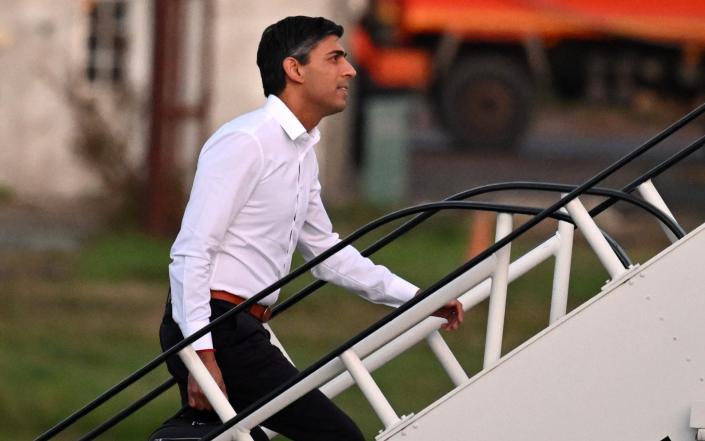

The first point of the Prime Minister’s “economic action plan” is “direct government support to where it’s most needed”, meaning a broad principle to prioritise protecting the most vulnerable both in the UK and overseas.
The second is to “end the weaponisation of food production and distribution” – specifically restarting the agreement to get grain out of Ukraine, which has broken down.
The third is to “strengthen our energy security and reduce energy dependence on Russia”, a drive that the UK has been pushing forward throughout the year.
The other two are to “open up global trade” and “providing honest, reliable finance to help developing countries grow sustainably”.

